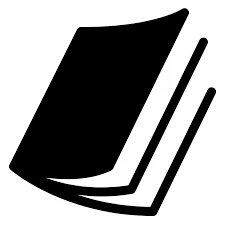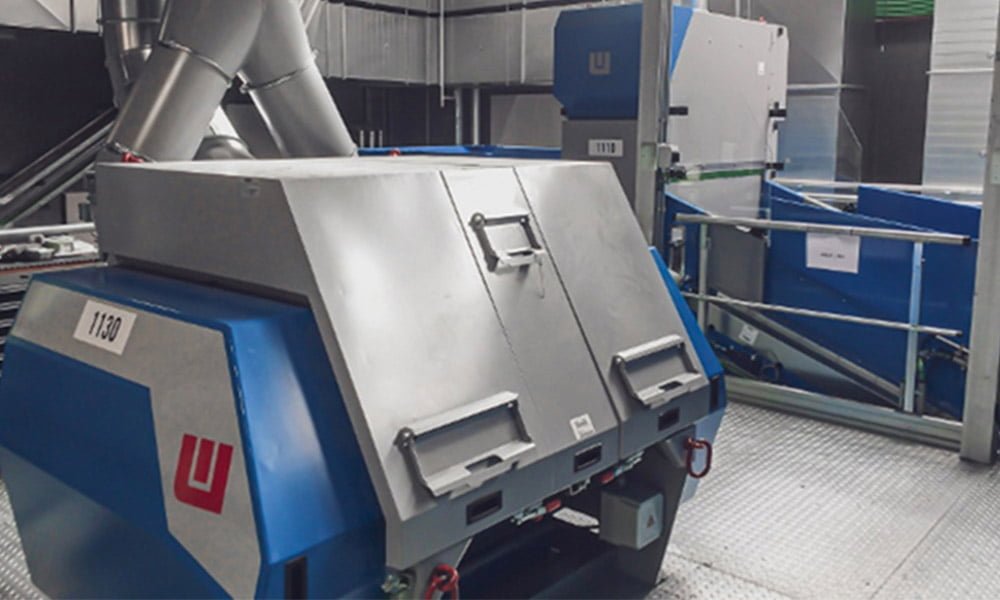Air classifiers are a crucial piece of equipment when it comes to systems that separate materials of different weights present in waste streams. In particular, Westeria’s AirLift is notably precise as far as sorting. As a separator for ultra-lightweight materials, Westeria’s Airlift is also capable of sorting fractions made up of components that differ in specific weight. An example application is the PET bottle recycling, in which the valuable PET fraction can efficiently and thoroughly be separated from lightweight contaminants such as PE films or paper labels.
Regulations governing plastics products are increasingly requiring the use of larger proportions of recycled materials. Germany’s Packaging Act specifies a material recycling rate of 58.5% for plastics packaging, a rate which is set to rise to 63% from 2022. These regulations disregard economic factors such as the oversupply of plastic scrap and the current reduced prices for virgin plastics. This means the requirements on the quality and purity of the input available for recycling are increasing. If these greater quantities of recycled material are to be obtained from post-consumer waste, greater attention has to be paid to the processing step upstream of recycling, particularly sorting.
New market situations demand the right tools for the job
Conventional over-conveyor extractors (or air classifiers) are very well suited to separating different weight fractions in waste streams. They cannot cope when it comes to differentiating presorted or similar lightweight components, which is why the Westeria AirLift plays a key role. The Airlift can replace conventional air classifiers in existing installations where it can then separate plastic film from paper or different plastics from one another.
The complete AirLift system consists of three components. The SpeedCon high-speed conveyor belt, which has a particularly long design service life, feeds the material at up to 4 ms-1 toward the central element, the AirLift while the AirWheel is arranged downstream of the AirLift. Depending on the model, working widths of the AirLift range between 1,000 mm and 3,500 mm, the widest being capable of handling throughputs of up to 320 m³/h with grain sizes varying from 60 mm to 250 mm. Maximum outlet capacity is 5.6 t/h. Automatic gate controllers prevent material blockages on the input and the output sides to ensure high operational reliability. Being continuously adjustable, the automatic gate control also ensures that the passage height can be adjusted exactly to the specific separation goal.
The SpeedCon is angled downwards by 20° directly below the intake. As a result, the air stream can easily get underneath the light parts. Angling the conveyor in this way imparts a ballistic trajectory to all input stream materials. The integrated controller can adjust the trajectory’s shape or throw distance via the belt speed to tailor it precisely to the task at hand. Diametric downflow ensures particularly high selectivity. Levels of purity in excess of 95% are achievable depending on the input material. For instance, an analysis of AirLift systems installed in the mixed plastics feed to an NIR sorter revealed that, for a working width of 2,800 mm, over 90% of the desired film fraction could be reliably separated. As a result, the system considerably reduces disposal costs and increases recycling cost-efficiency. Eliminating the film from mixed plastics facilitates NIR sorting and distinctly improves the sorting result.
System integration
The complete three-part AirLift system can be used as a sub-component of a more comprehensive sorting installation. Its design also allows it to be straightforwardly retrofitted if necessary.
Summary and outlook
Society is demanding the use of recycled plastics, a demand which policymakers are increasingly meeting. In the coming years, the circular economy will stop being a theoretical mission statement and become an everyday reality. Waste disposal operators readily require high-performance sorting technology in order to be able to obtain optimally segregated secondary raw materials from the waste stream. High-quality recycled plastics are essential for manufacturing products that can be put to use long-term.
With the AirLift in its arsenal, Westeria has a solution that meets requirements and can be straightforwardly retrofitted in existing sorting operations. The various models and configurations mean that they can be adapted to any kind of plant configuration. Westeria is constantly developing its technology and current projects, including the boosting of the performance of its high-efficiency “DiscSpreader” material distribution systems.











